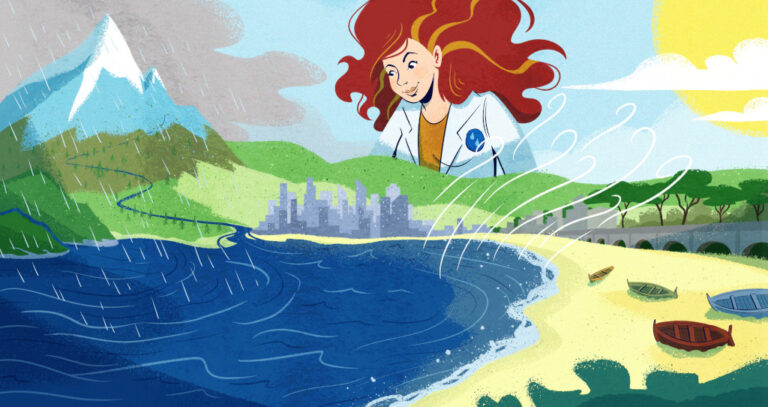
Earth has only a finite volume of water which is being recycled through the various reservoirs. This is what is called the water cycle. Only a small part of this cycle is actually fresh water and thus an essential resource for human activities. Climate change, meteorological processes as well all forms of life are strongly affected by changes in this continuous and interconnected cycle.
These changes in the water cycle lead to modifications of the distribution and intensity of precipitation, water mass circulations in the ocean and air movement in the atmosphere, the evolution of glaciers and ice-sheets, continental evaporation, groundwater transports and water quality.
A large fraction of natural disasters affecting livelihoods (inundations, droughts, cyclones and storms) are directly attributable to modifications in the water cycle and perturbations to the delicate balance of processes within this cycle.
IPSL has all the competences needed to advance our understanding of the processes governing the water cycle within the atmospheric, continental, oceanic and cryospheric reservoirs. The aim of this theme is to strengthen the exchanges and collaborations between these disciplines and thus develop an integrated perspective of the water cycle.
Five multidisciplinary topics have been selection in order to achieve this integrated vision of the hydrological cycle:
- Evolution of the water cycle in the Arctic region.
- Climate and anthropogenic driven changes in the continental water cycle.
- Organization of the tropical atmosphere by ocean and land.
- Extremes in the water cycle : precipitation and droughts.
- The coupling of the water reservoirs of the Antarctic region.
Moderators of the theme
Hélène Brogniez
LATMOS-IPSL
Jan Polcher
LSCE-IPSL

